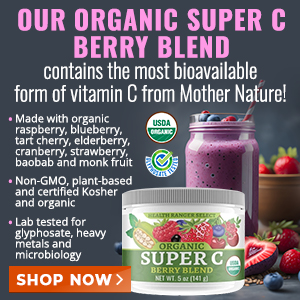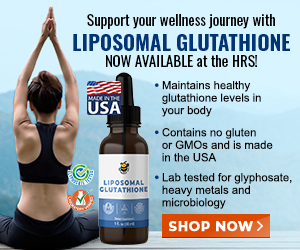People who regularly enjoy fast food are also indulging in 40 percent higher levels of toxins that can cause autism, asthma
Friday, May 20, 2016 by: J. D. Heyes
Tags: fast food, phthalates, autism

(NaturalNews) If you're someone who enjoys (over)indulging in fast food and pizza, there is more harming you than just the fare. According to new research, people who eat a lot of fast food are being exposed to 40 percent higher levels of potentially harmful chemicals, the Daily Mail Online reports.
The new study found that lovers of fast food are put at greater risk of exposure to phthalates, a group of chemicals that are used to soften and increase the pliability of vinyl and plastic, which are often found in fast-food packaging.
As further reported by the Daily Mail Online:
Phthalates have been banned from children's toys and products such as teething rings and soft books because of their potential toxic effects.
The chemicals are known to disrupt hormones and have been implicated in several illnesses and condition including asthma to autism.
The study, which was recently published in the journal Environmental Health Perspectives, is one of a very few to examine the effects of fast-food consumption and heightened exposure to phthalates.
Chemicals absorbed mostly into meats, breads
"People who ate the most fast food had phthalate levels that were as much as 40 per cent higher," said Assistant Prof. Ami Zota, of the Milken Institute School of Public Health in the United States, the study's lead author. "Our findings raise concerns because phthalates have been linked to a number of serious health problems in children and adults."Phthalates are part of a class of industrial chemicals that are used to manufacture food packaging materials, as well as tubing for dairy products and other items that are used in the fast food industry. Previous research has suggested that the chemicals can leach out of plastic food packaging and contaminate the food inside, especially if it is highly processed.
Zota and her team examined figures from 8,877 participants who responded to questions about their diet over a 24-hour period, including consumption of fast food. The study participants also gave researchers a urine sample that was tested for the breakdown of two specific phthalates, DEHP and DiNP. Researchers found that the more fast food study participants consumed, the higher their exposure to phthalates.
Indeed, study participants who ate more fast food had a nearly 24-percent higher concentration of DEHP in their urine, the Daily Mail Online reported. Also, the same high consumers of fast food had nearly 40 percent higher levels of DiNP metabolites in their urine samples than participants who had not eaten any fast food at all the previous 24 hours.
Researchers also found that grain and meat items harbored the highest concentrations of phthalates. Zota noted that the grain category included a wide variety of breads, cake, pizza, burritos, rice dishes and noodles.
She also said that other studies have identified grains as one of the biggest contributors of exposure to the potentially harmful chemical group.
They're everywhere
In November 2012 Natural News reported that phthalates not only are harmful to our health but are found in several other common products we use everyday:Phthalates... are found in many personal care products such as hair sprays, perfumes, nail polish, sunscreens and lotions. They are also used in medical devices, on timed release pills (where they are often part of the coating), in children's toys and plastic food containers as well as in such products as floor and wall coverings. The new car smell, which makes owners proud, is due in part to phthalates which can escape from the plastic dashboard after sun exposure and leave a nasty coating on the inside of the windshield.
"People concerned about this issue can't go wrong by eating more fruits and vegetables and less fast food," said Zota. "A diet filled with whole foods offers a variety of health benefits that go far beyond the question of phthalates."
Make sure to check out FoodForensics.com for a sneak peek of Food Forensics, the new book by Natural News Editor Mike Adams, the Health Ranger, which details his efforts in the laboratory to eliminate food toxins and improve public health.
Sources:
DailyMail.co.uk
NaturalNews.com
OurStolenFuture.org
Science.NaturalNews.com
Fast food at FETCH.news
Get independent news alerts on natural cures, food lab tests, cannabis medicine, science, robotics, drones, privacy and more.
Take Action: Support Natural News by linking to this article from your website
Permalink to this article:
Embed article link: (copy HTML code below):
Reprinting this article:
Non-commercial use OK, cite NaturalNews.com with clickable link.
Follow Natural News on Facebook, Twitter, Google Plus, and Pinterest
- Newly released JFK files reveal Pentagon's role in creating Lyme disease and covid in the same lab
- Trump's greatest betrayal so far: Accelerating Middle East wars, silencing dissent, and serving Zionist masters
- Trump nominates VACCINE ZEALOT Susan Monarez to lead the CDC, sidelining RFK Jr.'s reform efforts
- The hidden dangers in your kitchen: How cooking methods impact diabetes, cancer and aging
- STARDUST, a secretive Israeli-US startup, plans risky solar geoengineering experiment to BLOCK OUT THE SUN
- DEADLY DECEPTION: How COVID vaccines increased mortality rates and why authorities hid the truth
- Arkansas embraces medical freedom with landmark ivermectin law
- CDC finally halts $11 billion COVID funding scam as health officials admit the ‘pandemic’ was a fraud
- Lab leak confirmed? Boris Johnson's stunning reversal on COVID origins sparks global debate
- Home gardening for preppers: A beginner's guide to growing your own food
- Analysis: The coming economic collapse, a mass uprising and Trump's three secret weapons to halt the growing revolt
- The forgotten hormone hero: How vitamin C quietly balances mood, stress and reproductive health
- Festive flavors: The sweet history, nutritional profile and health benefits of pecan pie
- Elon Musk: Aliens could be here on Earth RIGHT NOW
- Dr. Mike Yeadon releases 15-minute testimony - WATCH - about genocidal intent of COVID “vaccines”
- YouTube’s double standard: CEO defends censorship while claiming free speech champion status
- California's social media censorship law struck down: A victory for free speech or a threat to online safety?
- Sugarcane extract superior to cholesterol-lowering drugs?
- Newly released JFK files reveal Pentagon's role in creating Lyme disease and covid in the same lab
- Elon Musk: Aliens could be here on Earth RIGHT NOW
- Reclaim your health: How midlife exercise reverses years of inactivity
- Trump reverses course on Gaza plan, says “nobody is expelling Palestinians”
- EPA advisor admits the agency is funneling billions to climate groups ahead of Trump’s return to White House
- Big Pharma's $8 Billion bribery scheme exposed: how doctors are pushed to prescribe junk science, not heal
- Space war brewing? Russia threatens to destroy Starlink satellites
- A lack of integrity in Academia: Harvard professor found GUILTY of fraudulent research to promote CRT theory
- Survival 101: Effective EMF blocking techniques
- Rep. Nancy Mace introduces bill to ban biological males from female facilities on federal property
- Mike Adams Sermon 66: God will DESTROY ISRAEL for its wickedness
- Pilots report mysterious lights 'moving at extreme speeds' across Oregon skies
- 5 Simple steps to boost your brainpower: How to strengthen executive function in a distracted world
- Historian warns Israel may be entering an “IRREMEDIABLE DECLINE”
- Florida takes a stand: DeSantis proposes permanent ban on mRNA vaccine mandates
- RFK Jr.'s SSRI antidepressant investigation sparks liberal meltdown, exposes Big Pharma's dangerous game
- OpenAI whistleblower who dissented against how the company trained ChatGPT found dead
- Sugarcane extract superior to cholesterol-lowering drugs?
- EPA advisor admits the agency is funneling billions to climate groups ahead of Trump’s return to White House
- The Health Ranger releases “Vaccine Zombie” song and music video, using AI-animated zombies for the music video
- California's social media censorship law struck down: A victory for free speech or a threat to online safety?
- Dr. Mike Yeadon releases 15-minute testimony - WATCH - about genocidal intent of COVID “vaccines”
- The pandemic as a tool for INDOCTRINATION: Understanding “The Indoctrinated Brain” by Dr. Michael Nehls
- Mike Adams releases country western hit single: Goin’ Back in Time is Comin’ Home
- Mike Adams releases music poetry sensation: A Child of God
- RFK Jr. clears key hurdle: Sen. Susan Collins backs controversial HHS nominee, signaling a new era for health policy
- Florida takes a stand: DeSantis proposes permanent ban on mRNA vaccine mandates
- Unpacking the Lies That We’ve Been Fed – new song and music video released by Mike Adams, the Health Ranger
- Mike Adams releases new song and music video: Nothing More Disgusting Than a Globalist
- Congratulations to the FULLY UNVACCINATED as you resisted the COVID-19 PROPAGANDA MACHINE fueled by over $100 BILLION
- “Why we influenced the 2020 elections”: Facebook files reveal the coordinated effort to bury the Hunter Biden laptop story
- Michigan sheriff announces criminal investigation into 2020 election crimes, Dominion Voting Systems
- Israeli soldiers accused of even more torture and abuse in the West Bank
- Migrants are taking advantage of recent hurricanes to scam residents and loot their homes
- House Intelligence Committee calls for the ARREST and PROSECUTION of Dr. Anthony Fauci
- Peter Rost exposes Big Pharma corruption in his book “The Whistleblower: Confessions of a Healthcare Hitman”
- Red Cross issues warning to stop blood plasma donations from vaccinated people
- Scientists confirm: GENIUS brain function can be spontaneously unleashed in humans without any apparent cause
- EPA advisor admits the agency is funneling billions to climate groups ahead of Trump’s return to White House
- HYSSOP: What research reveals about the health benefits of this ancient holy herb
- Two containers with completed ballots fall out of truck in Florida
- Fully vaccinated about to see “tsunami” of illness and death, warns virologist
- Global leaders unite to clamp down on “misinformation” with UN-backed Cascais Declaration
- BREAKING: 2025 NDAA authorizes mandatory military draft of WOMEN across America… as Pentagon pursues global NUCLEAR war with both Russia and China at the same time
- Michael Yon warns of a ZIONIST TAKEOVER in Trump’s second administration
- BOMBSHELL: DNA testing kits are a SCAM to develop ethnic-specific bioweapons
- Ozempic and Wegovy weight loss drugs are injectable LIZARD VENOM PEPTIDES that may unleash a devastating wave of organ failure… side effects align with symptoms of SNAKE BITES
- Israeli soldiers accused of even more torture and abuse in the West Bank
- These 13 countries just signed an agreement to engineer a global FAMINE by destroying food supply
- NASA admits that climate change occurs because of changes in Earth’s solar orbit, and NOT because of SUVs and fossil fuels
- RFK Jr. clears key hurdle: Sen. Susan Collins backs controversial HHS nominee, signaling a new era for health policy
- Sermon 30: How Jesus reveals Caesar’s FAKE CURRENCY and FALSE AUTHORITY
- Coriander seeds: Ancient medicine backed by modern science
- Arizona officials claim Maricopa County needs 10-13 days to tabulate results of the election
Science News & Studies
Medicine News and Information
Food News & Studies
Health News & Studies
Herbs News & Information
Pollution News & Studies
Cancer News & Studies
Climate News & Studies
Survival News & Information
Gear News & Information
News covering technology, stocks, hackers, and more



"Big Tech and mainstream media are constantly trying to silence the independent voices that dare to bring you the truth about toxic food ingredients, dangerous medications and the failed, fraudulent science of the profit-driven medical establishment.
Email is one of the best ways to make sure you stay informed, without the censorship of the tech giants (Google, Apple, Facebook, Twitter, YouTube, etc.). Stay informed and you'll even likely learn information that may help save your own life."
–The Health Ranger, Mike Adams












































